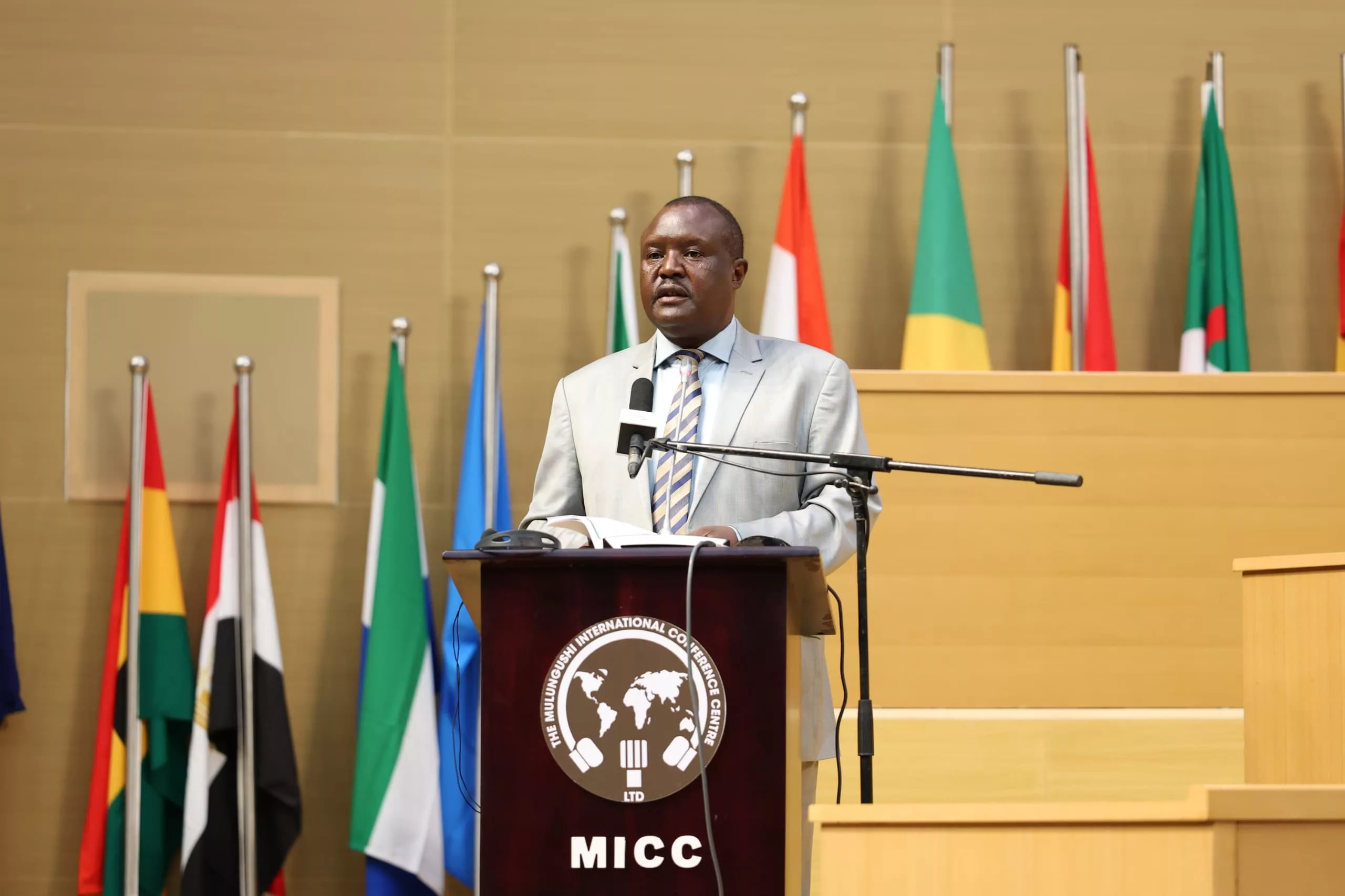|
Getting your Trinity Audio player ready...
|
Parliamentary institutions play a key role in strengthening the legislative frameworks of Member States in the fight against illicit and tax avoidance-related financial flows (ITAFF) and in overseeing good governance, Chief Charumbira, the President of the Pan African Parliament has said.
He made the remarks today in Lusaka, Zambia at the 4th Sub Committee on Tax and Illicit Financial Flows meeting which is being held under the theme, “Advancing Africa’s Agenda 2063 Through Tax and Fiscal Policy Measures to Enhance Domestic Resource Mobilisation.”
“Let me begin by conveying my gratitude to the Commissioner for Economic Development, Trade, Tourism, Industry and Minerals, H.E. Commissioner Albert Muchanga, for extending an invitation to the Pan African Parliament to attend this 4th Sub Committee on Tax and Illicit Financial Flows which is being held under the theme, “Advancing Africa’s Agenda 2063 Through Tax and Fiscal Policy Measures to Enhance Domestic Resource Mobilisation.”
“Indeed, my presence here is a recognition of the role that Parliamentary institutions in general play in strengthening the legislative frameworks of Member States in the fight against illicit and tax avoidance-related financial flows (ITAFF) and in overseeing good governance which is critical to curbing ITAFFs. The Pan African Parliament, as the continental representative institution, is no exception,” Chief Charumbira said.
The Pan-African Parliament is the continental representative institution established by the African Union in 2004 to “ensure the full participation of African peoples in the economic development and integration of the continent.”
“The PAP, therefore, serves as the supreme continental representative institution that stands for and carries the voice and aspirations of the people of Africa in the decision-making processes of the It is, therefore, befitting that any initiative that seeks to address the developmental challenges affecting the continent, including the scourge of illicit and tax-related financial flows, should of necessity include the representatives of the people whose lives and livelihoods are adversely affected by ITAFFs,” Chief Charumbira added.
The Sustainable Development Goals also identify the reduction of IFFs as a priority area, as reflected in Target 4: “By 2030, significantly reduce illicit financial flows and arms flows, strengthen the recovery and return of stolen assets and combat all forms of organised crime”.
This target is critical for financing efforts to achieve SDGs. IFFs were also identified as a global priority in the Addis Ababa Action Agenda (United Nations, 2015) on financing for development which calls for a redoubling of efforts to substantially reduce IFFs and eventually eliminate them.
Article 11 (3) of the PAP Protocol as read with Rule 4(1)(d) of the PAP Rules of Procedure enjoins the Parliament to, “Contribute to the harmonization and coordination of the legislative texts of Member States.”
Chief Charumbira said the African Tax Forum (ATAF) and Tax Justice Network Africa (TJNA) have worked extensively with the Pan African Parliament and other parliamentarians to create awareness of IFFs to enable them to engage more effectively in policy and legislative deliberations to stem IFFs and improve domestic resource mobilization.
The PAP Standing Committee on Monetary and Financial Affairs in collaboration with ATAF proactively developed a model Double Taxation Agreement (DTA) which was extensively debated and adopted by the PAP Plenary. This model DTA provides a reference point for Member States to draft, negotiate, and re-negotiate their existing tax policies. The model DTA has been presented to the African Commission on International Law which has been endorsed and submitted to the Specialized Technical Committee on Legal Matters for consideration.
While it has been difficult to accurately quantify the extent of IFFs due to the clandestine and underground nature of the activities, Chief Charumbira said it should gravely concern all of stakeholders that:
-
- It is estimated that Africa lost up to US$ 1.8 trillion between 1970 to 2008 and continues to lose extensive finances through Illicit Financial Flows (IFF) or “Illicit Capital Flight” mainly through tax evasion, mispricing of trade and services by multi-national companies
- IFFs from Africa are currently estimated at US$88.6 billion annually;
- In 2013, Nigeria was losing an estimated 100,000-250,000 barrels of oil per day, with a value of approximately USD 3-8 billion per year. (Katsouris and Sayne 2013). It is estimated that this sum would fund access to electricity for all Nigerians by 2030.
- In Sierra Leone between 50-90% of the diamond trade is lost through smuggling (Fanthorpe and Gabelle, 2013).
- The United Nations Conference on Trade and Development (UNCTAD)’s Economic Development in Africa Report (EDAR) (UNCTAD, 2020) found that some countries with high IFFs spend on average 25 percent less on health and 58 per cent less on education compared with countries with low IFFs.
Chief Charumbira emphasized the need to have a holistic approach to dealing with the problem of IFFs to make any meaningful progress.
“In that regard, therefore, we must bring together all stakeholders involved in governance, peace and security, taxation, and financial issues to deal with this challenge comprehensively,” he said.






